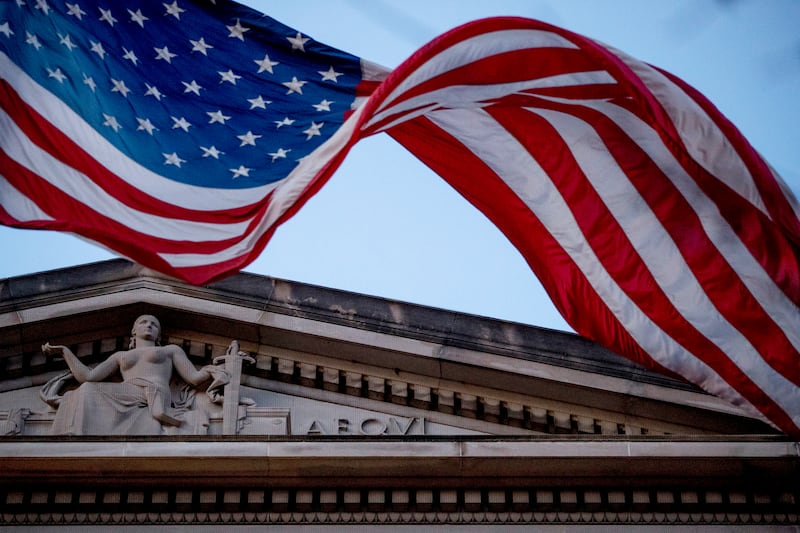When negotiating any dispute, it’s helpful to begin by finding common ground. In the mess that has become politics and public policy in the United States, that apparently means starting with the founding principles of freedom, equality and self-governance.
Those sound a lot like the life, liberty and the pursuit of happiness spelled out in the Declaration of Independence. They are core to the American tradition of governance, and a recent survey shows they still hold value today.
Frankly, that’s a welcome bit of good news.
Pollster Scott Rasmussen, who also polls in partnership for the Deseret News and the Hinckley Institute of Politics at the University of Utah, recently conducted a survey that found 93% of Americans agree it is important for political leaders to focus on bringing people together. When asked about a starting point for that togetherness, 73% pointed to those founding principles.
Even two-thirds of younger voters said freedom, equality and self-governance were important. Support transcended race, ideology, political persuasion, the rural-urban divide and levels of education.
Those results ought to shine as a ray of hope for all concerned Americans during troubled times. Maybe, despite the divisiveness of a pandemic and racial tensions, people are not as far apart as they seem. Maybe the ideals spelled out by the nation’s founders 21⁄2 centuries ago still transcend the many contrasting and opposing factions of a pluralistic society.
The United States has spent its first 244 years trying to live up to those ideals. Despite falling short again and again, the nation has kept striving for them, making the sort of incremental progress that ennobles the continued pursuit.
Of course, Americans can’t adequately strive for these ideals without fully understanding them. On that point, the record has not always been good. Every year, the Annenberg Public Policy Center of the University of Pennsylvania surveys Americans on their knowledge of the Constitution and the nation’s system of government.
Last year, the results showed a slight improvement. Still, only 39% could correctly name the three branches of government (executive, legislative and judicial).
On the other hand, 83% correctly knew the U.S. Supreme Court had upheld the constitutionality of owning a handgun, and 55% correctly knew that people who are in the United States illegally still have rights under the Constitution.
Such basic understanding of the nation’s governance could serve as a framework for negotiating differences amicably. The Annenberg survey also found a correlation between those who had taken a high school civics class and the ability to give correct answers. A greater emphasis on providing such education could be key to continuing the American experiment into future generations, despite whatever conflicts may arise.
Of course, just because Americans believe in unity and the nation’s foundation principles doesn’t mean they all agree on how to unite people.
Rasmussen’s survey found that Republicans tend to believe in giving people more individual freedom to pursue their own ideas, while a plurality of Democrats felt it was better to let governments establish the rules for bringing people together fairly.
The bigger question may be whether people on both sides of that question can respect that unity can be approached in different legitimate ways, or that the true answer may lie somewhere between the traditional ideological goalposts.
Regardless, in an age when our divisions seem to get all the attention, it’s refreshing to hear that Americans are not really as far apart as they appear, and that freedom, equality and self-governance remain as cherished foundational concepts.

